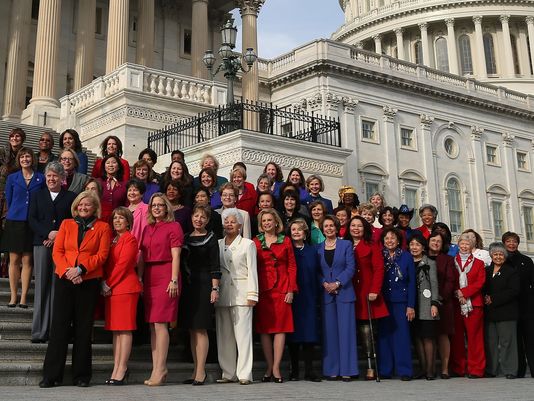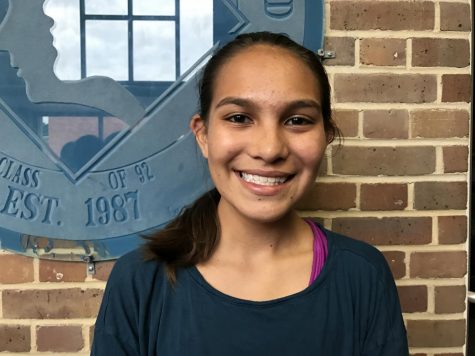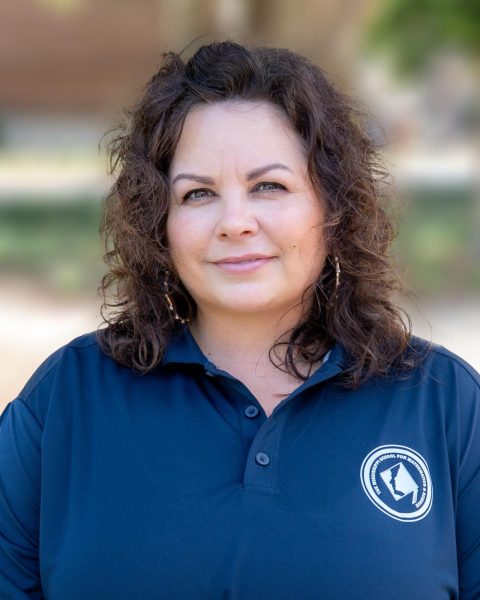Gordon: Newfound Diversity in U.S. Congress

Nancy Pelosi from San Francisco, CA [CC BY 2.0], via Wikimedia Commons
January 14, 2019
The 2018 midterm elections have changed representation. Young women have campaigned and won the respect and seats at the U.S. Senate. In 1992, the year of the woman, more women stepped forth and took up senatorial positions, and the recent midterm election in 2018 showed another increase of women in the Senate. According to the Center for American Women and Politics, 20.6% of the 535 members of Congress are women, 23% of the U.S. Senate are women, 20% of the House of Representatives are women, and five women represent American Samoa, District of Columbia, Guam, Puerto Rico, and the Virgin Islands in the House of Representatives. Women in the election have brought forth many firsts such as first Native American women, first Muslim, and youngest women elected.
Ho-Chuch Nation’s Sharice Davids and Laguna Pueblo tribe’s Deb Haaland became the first Native American women to ever be elected into Congress. Davids is one of the first Native American women as well as one of the first openly LGBT people to represent Kansas. Davids supporters hope that she will advocate for major issues that affect Native Americans, such as high rates of violence and sexual assault. Time quotes Haaland saying, “Seventy years ago, Native Americans right here in New Mexico couldn’t vote. Tonight, New Mexico, you are sending one of the very first Native American women to Congress.” Haaland vows to support environmental issues and regulation in the hope to reserve public lands and help make health care affordable. According to Time, two women before her have tried to run for a seat in the U.S. House but were unable to get a seat. The two women will join the two Native American men in Congress.
Two Muslim women, Rashida Tlaib and Ilhan Omar, have made history together by being the first Muslim women elected in the U.S. Senate. Tlib, daughter of Palestinian immigrants, also made history as the first Muslim female member of Michigan’s state legislature. Tlaib comes to Congress as a vocal critic of President Donald Trump. Omar came to America as a refugee and decided to make a change, so she not only became the first Muslim woman but also the first Somali-American member to join the U.S. Senate. Omar hopes to change Congress’ views on the Israeli government’s treatment of Palestinians.
At age twenty-nine, Alexandria Ocasio-Cortez became the youngest woman elected into Congress. She is proud to represent the demographics of her district stating to NowThis, “Our district is 70 percent people of color, and we have never had a person of color represent us in American history.” According to CNBC, half of the people in her district are immigrants, which she says that she feels confident representing. Although she is young, Ocasio-Cortez has worked for Senator Ted Kennedy and as an organizer for Bernie Sanders, and has served as education director for the National Hispanic Institute.
Many women have stepped up to the plate in hope of changing the United States. This year alone has seen many firsts related to age, gender, sexuality, and race. Alexandria represents both young American women as well as a diverse demographic district. Davids and Haaland represent Native American women as well as the LGBT community. Tlaib and Omar represent Muslim women as well as people who immigrated to the US.









